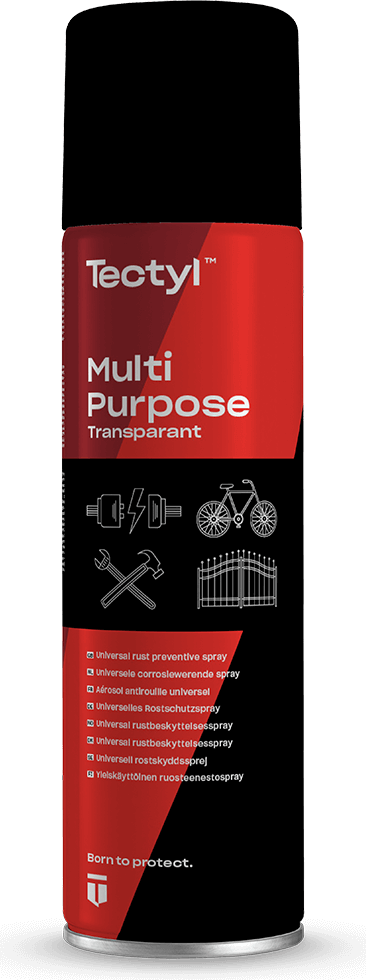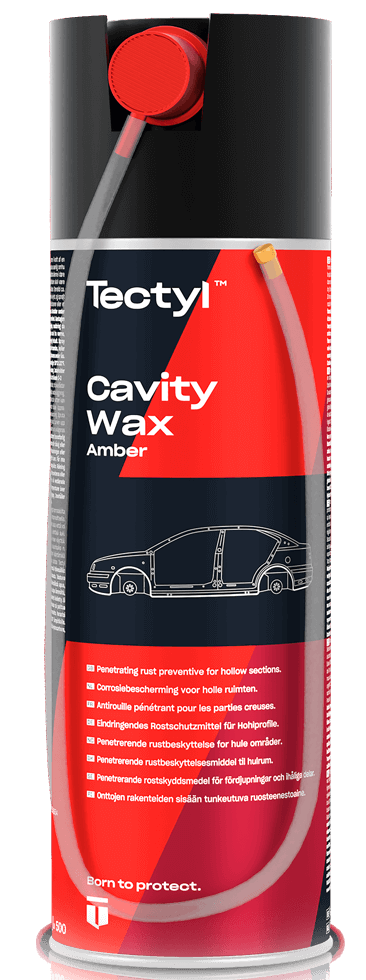Yes, well. I have had my aluminium piece (6061 T6) outside unprotected for several years. No corrosion at all 
This XCP does seem to work pretty well, but the tests are done against the typical “snake oil” products, not against the industry leaders. Tectyl for instance has dozens and dozens of different products for different use, different applications. They are mostly supplying different industries directly, not the aftermarket in particular. They do have aftermarket products though. What would be interesting was to see a test against these products for instance:


or perhaps this:

Even ordinary linseed oil works well in cavities and lots of other places.
ACF50 is definitely not “snake oil”.
There may be something better, of course.
Peter wrote:
ACF50 is definitely not “snake oil”.There may be something better, of course.
Totally agree Peter. Products like ACF-50, Corrosion X, etc. certainly do a good job, and have done for a long time, especially compared with widely used multi-functional products like WD-40, etc. We’re just hoping to appeal to people who are looking for new and improved alternatives :-)
LeSving wrote:
This XCP does seem to work pretty well, but the tests are done against the typical “snake oil” products, not against the industry leaders. Tectyl for instance has dozens and dozens of different products for different use, different applications. They are mostly supplying different industries directly, not the aftermarket in particular. They do have aftermarket products though. What would be interesting was to see a test against these products for instance:
I’m not trying to be contrary here, but Tectyl products are not the most widely used product in the aviation/aerospace industry. Yes – they are definitely widely used across industrial markets & automotive, and I’m sure they are also used in aviation, but not as widely as products like ACF-50, Corrosion X, Ardrox, etc.
We have tested against specialist Tectyl formulations, like Tectyl 542 and 506, and XCP Rust Blocker has outperformed them (again on industry standard salt fog testing). The multi-purpose products shown above will not offer much corrosion protection, but to be fair to Tectyl, they will not have be designed for that purpose. Similarly, our multi-purpose XCP ONE product is great for loosening off seized parts, etc., but it’s nowhere near the corrosion protection offered by Rust Blocker.
Cheers,
Scott
How well does this stuff adhere and generally hang about? That’s the real question. As I and @LeSving said before, anything ‘works’ so long as it keeps the air, moisture and material apart. Hence why painting works so well.
If I sprayed this stuff into an internal cavity of unprimed alclad, say the inside of an aileron, is that job done for life (as it might be with priming) or do I need to reapply at some point? It is moot to some extent because I believe the LAA insist on priming so my RV-7 build will be primed, but if a product like Rust Blocker offered very long lasting adherence and didn’t cost the earth then I might be tempted to spray it into internal cavities, on top of the primer, before closing them up.
The salt fog tests are all very well, but are the test pieces being shaken about and subjected to airflow / pressure changes as if they were part of an aeroplane?
Graham wrote:
How well does this stuff adhere and generally hang about? That’s the real question. As I and @LeSving said before, anything ‘works’ so long as it keeps the air, moisture and material apart. Hence why painting works so well.If I sprayed this stuff into an internal cavity of unprimed alclad, say the inside of an aileron, is that job done for life (as it might be with priming) or do I need to reapply at some point? It is moot to some extent because I believe the LAA insist on priming so my RV-7 build will be primed, but if a product like Rust Blocker offered very long lasting adherence and didn’t cost the earth then I might be tempted to spray it into internal cavities, on top of the primer, before closing them up.
The salt fog tests are all very well, but are the test pieces being shaken about and subjected to airflow / pressure changes as if they were part of an aeroplane?
The strength of the bond it forms with the substrate it’s applied on to, is what sets Rust Blocker apart from the other products we have compared against. It sticks around a lot longer (pardon the pun) and isn’t removed as easily. So I really don’t think you’d need to reapply, especially if applied over a primer.
I take your point about primers, but in the other part of our business, we also manufacture long term and flash rust corrosion inhibitor additives for paints & coatings, and even the best epoxy/alkyd resin direct to metal coating can still corrode if put under enough ‘stress’. Protecting it further with a soft film compound like XCP Rust Blocker will give you the ‘belt and braces’ approach.
Hope that helps.
XCP_Professional wrote:
The strength of the bond it forms with the substrate it’s applied on to
Presumably it needs the substrate to be spotlessly clean?
XCP_Professional wrote:
We do – these guys are great :-)https://www.grimm-handel.ch/xcp-protection
Cheers,
Scott
Thanks Scott – just ordered a bottle.
Graham wrote:
Presumably it needs the substrate to be spotlessly clean?
In an ideal world, yes. But in reality that rarely happens. The product will also penetrate and displace moisture, so it doesn’t need to be spotlessly clean. In many cases, people will even apply it on surfaces with pre-exisiting corrosion. It won’t remove that, but it will stop it getting any worse.
eurogaguest1980 wrote:
Thanks Scott – just ordered a bottle
